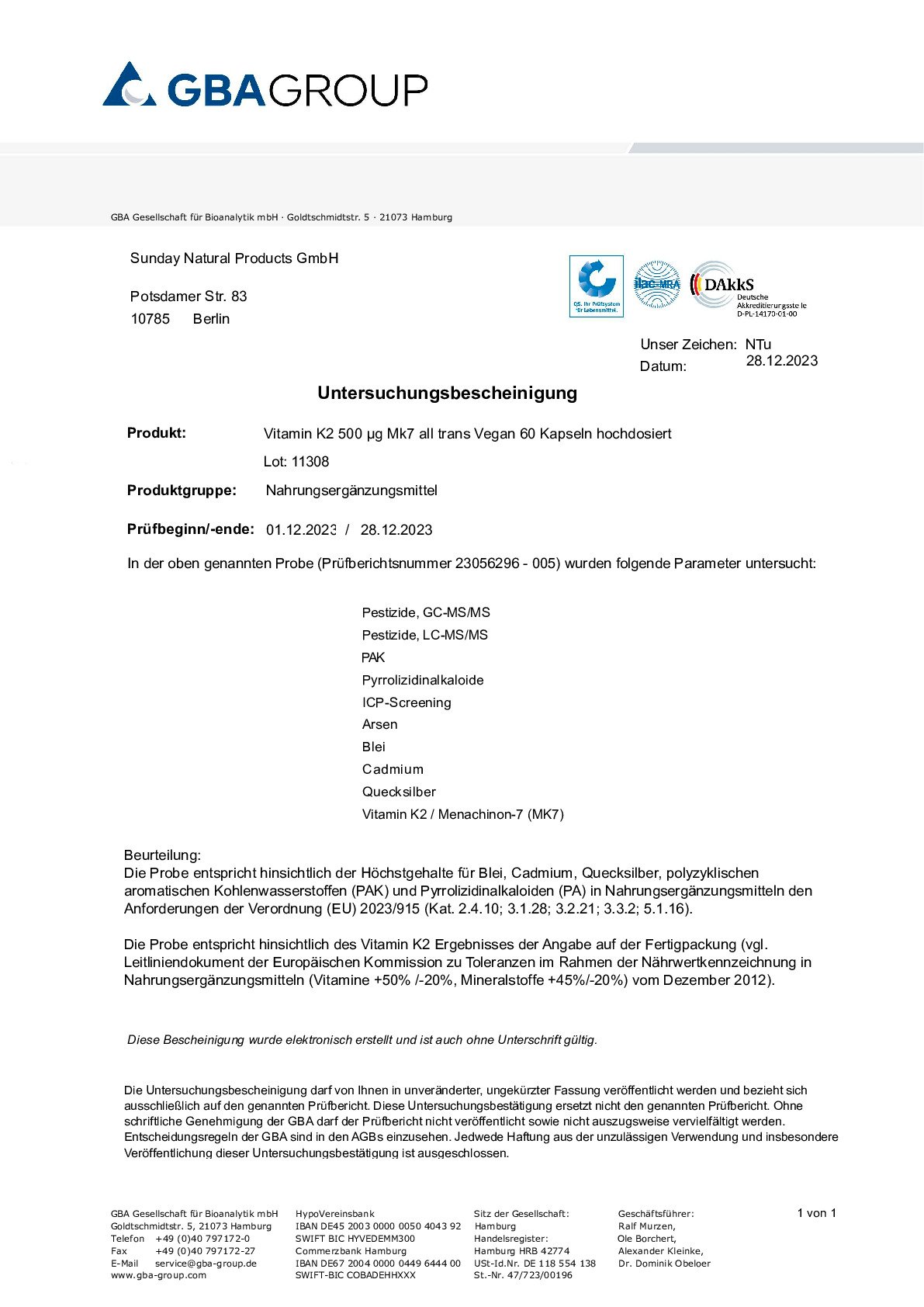Vitamin K
Vitamin K is found in nature as vitamin K1 (phylloquinone) and vitamin K2 (menaquinone), with vitamin K2 appearing to be the more active of the two forms. Phylloquinone is mainly found in plants, while menaquinone is produced by some human intestinal bacteria or is found in foods fermented by microorganisms, such as sauerkraut or the Japanese dish nattō.
Vitamin K2
Vitamin K2 activates a range of special proteins in the body that play a role in important metabolic processes, including the transport and utilisation of calcium, blood clotting, the regulation of cell division, cell differentiation, cell migration and important repair processes in various vessels and organs. As far as their effects on the body, virtually every health authority currently treats the vitamins of the K group as one. Accordingly, statements released for vitamin K1 are also attributed to vitamin K2.
According to the European Food Safety Authority (EFSA), vitamin K contributes to:
- Normal blood clotting
- The maintenance of normal bones
Vitamin K2 & Vitamin D
Vitamin K2 is the most important cofactor of vitamin D in the regulation of calcium metabolism. Together, the two vitamins control bone-building as well as breaking down cells and important transport molecules that ensure the correct utilisation of calcium.























